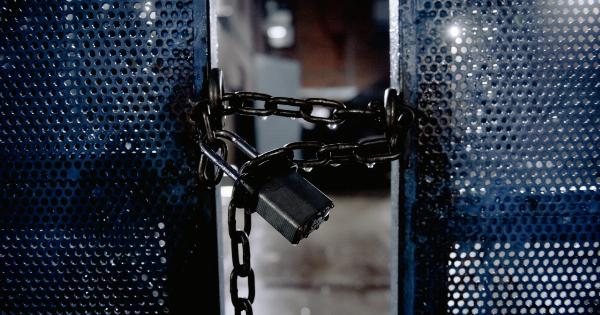When it comes to your property, whether it’s your home, vehicle, or business, ensuring it is protected is of utmost importance. One way to safeguard your assets is by securing adequate insurance coverage.
Insurance provides financial protection against unexpected events, accidents, or natural disasters that may cause damage or loss to your property. While it may seem like an additional expense, the advantages of protecting your property with insurance far outweigh the cost. In this article, we will explore the various benefits that insurance offers and why it is crucial to have it.
1. Financial Security
One of the primary advantages of having property insurance is the financial security it provides. Property damage or loss can result in significant financial setbacks.
Whether it’s a fire that destroys your home, a stolen vehicle, or a burglary at your business, these events can lead to substantial financial losses. Insurance coverage helps alleviate the burden by providing funds to repair, replace, or compensate for any damage or loss sustained.
2. Peace of Mind
Knowing that your property is protected brings a sense of peace of mind. Life is unpredictable, and unfortunate incidents can occur when least expected. However, having insurance coverage ensures that you don’t have to face the consequences alone.
Whether it’s repairing a damaged roof after a storm or replacing stolen possessions, insurance provides the reassurance that you will not bear the entire financial burden on your own.
3. Property Repair and Replacement
Property insurance covers the cost of repairing or replacing damaged assets due to various reasons. For homeowners, this could mean getting a new roof after a storm, repairing water damage, or even rebuilding a home in case of a total loss.
For vehicle owners, insurance helps cover the cost of repairs or replacement if your vehicle is damaged due to an accident, theft, or natural disaster. Business owners can also benefit from property insurance as it protects their assets, equipment, and inventory in case of damage or loss.
4. Liability Protection
Another vital benefit of property insurance is liability protection. Accidents can happen on your property, and if you are found responsible, you may be held liable for medical expenses and legal costs.
Property insurance typically includes liability coverage that helps protect you in such situations. Whether it is a slip and fall accident at your home or an injury caused by a defective product from your business, liability coverage can provide financial support for legal proceedings and compensation.
5. Coverage against Natural Disasters
Natural disasters such as hurricanes, earthquakes, floods, or wildfires can cause extensive damage to your property. The cost of repairing or rebuilding after such events can be overwhelming.
However, insurance policies often include coverage for natural disasters, enabling you to recover and rebuild without depleting your savings or going into debt. It is crucial to carefully review your insurance policy to ensure you have adequate coverage for specific natural disasters common in your area.
6. Business Continuity
For business owners, protecting your property with insurance is essential for business continuity.
If unforeseen events such as fire, theft, or natural disasters strike, it can disrupt your operations and potentially lead to substantial financial losses. Having property insurance ensures that you can recover and continue your business operations without a prolonged interruption.
Insurance coverage can help cover the cost of repairs, replace damaged equipment, and provide the necessary financial support during the recovery period.
7. Lender Requirements
If you have a mortgage, lenders typically require property insurance as a condition for granting a loan. Lenders need assurance that their investment is protected in case of damage or loss to your property.
By having insurance coverage, you fulfill this requirement and provide lenders with confidence in extending the loan. Additionally, if you plan to lease your property or equipment, insurance may be a prerequisite demanded by the lessee to protect their interests.
8. Additional Living Expenses
In the event that your home becomes uninhabitable due to a covered loss, property insurance often includes coverage for additional living expenses.
This means that if you need to stay in a hotel, rent a temporary home, or incur other expenses while your property is being repaired, your insurance policy can help cover these costs. This feature ensures that you are not burdened with extra expenses during the recovery phase.
9. Customizable Coverage
Insurance providers understand that each individual’s or business’s needs are unique. Therefore, they offer customizable coverage options to suit varying requirements.
You can tailor your insurance policy to include specific coverage for the types of risks you face. For example, you may choose to add flood insurance if you live in a flood-prone area or opt for additional coverage for valuable items such as jewelry or art.
This flexibility allows you to design an insurance plan that aligns with your property’s specific protection needs.
10. Lower Stress Levels
Ultimately, having property insurance reduces stress levels associated with potential risks and uncertainties.
Knowing that you have the necessary protection in place provides a sense of security and allows you to focus on other aspects of your daily life or business activities. Instead of worrying about unexpected events or the financial implications of property damage or loss, insurance allows you to proactively prepare and minimize the impact of unfortunate situations.



























